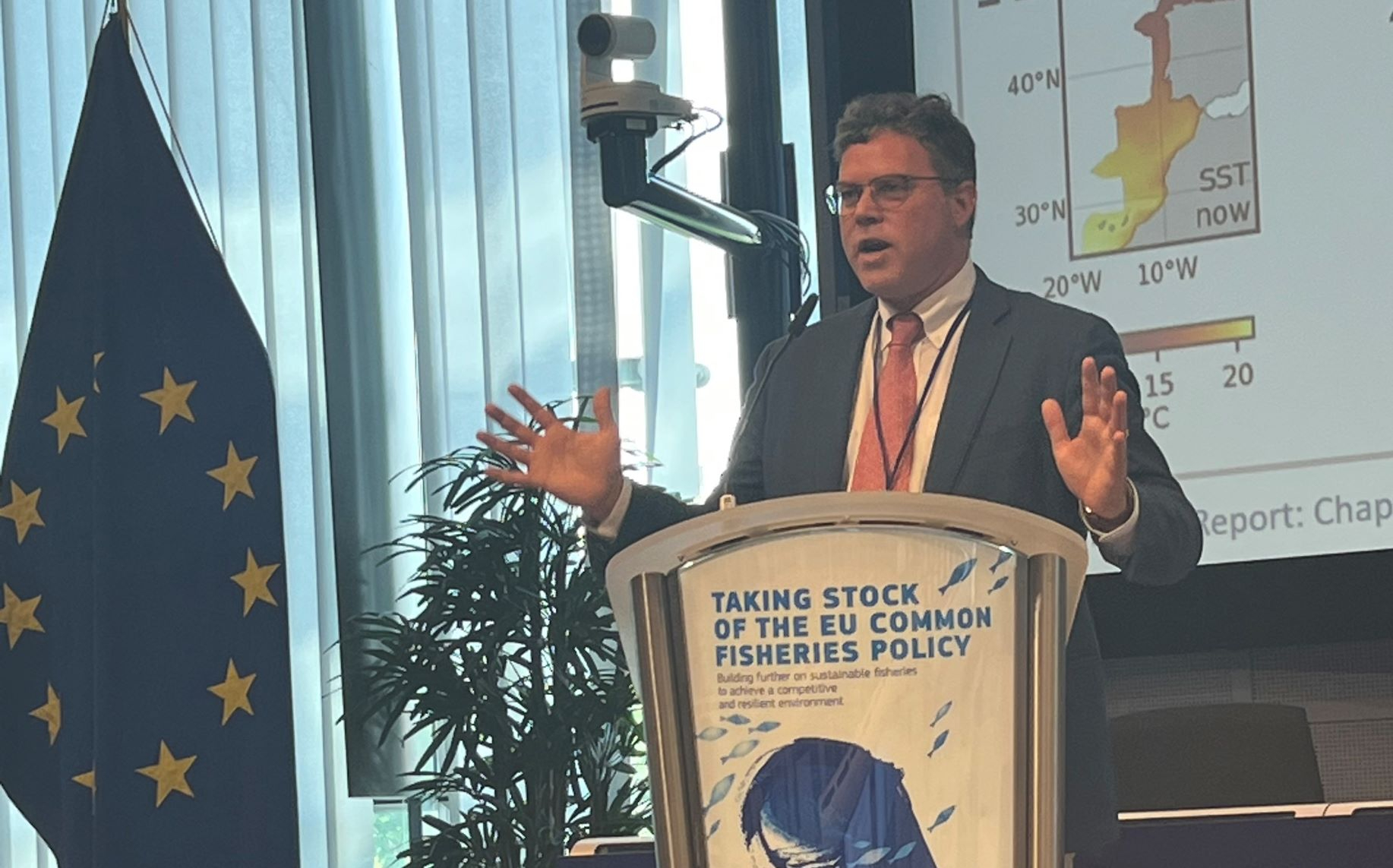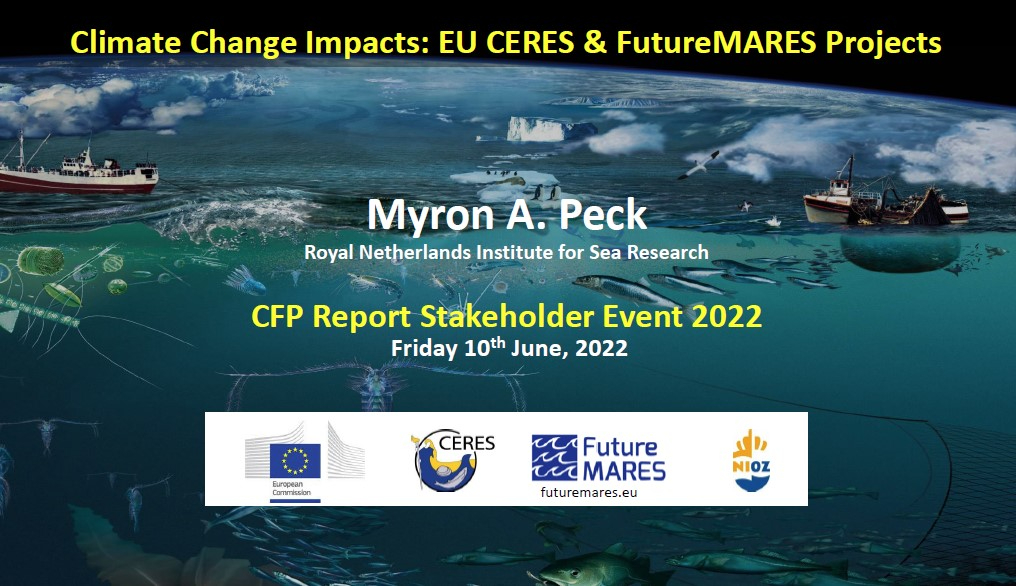Myron Peck presents EU commission on effects of climate change on fish and shellfish stocks
Peck reviewed the direct and indirect effects of projected warming and other changes in ocean habitats on the productivity and distribution of fish stocks and the potential economic consequences. The presentation summarized previous (EU CERES) and ongoing (EU FutureMARES) research providing science-based policy advice for climate-ready seafood harvesting and nature-based solutions. He discussed specific examples of “climate winners and losers” throughout most European regional seas. He highlighted knowledge gaps, such as predicting food web responses and underscored the need for continued ecological monitoring and for local-scale social and economic impact studies.

He emphasized strong interactions among policy actions addressing food security and the climate and biodiversity crises. Important targets for energy (expanding offshore windfarms for a climate neutral Europe), nature (the EU Green Deal’s “30 by 30” – 30% of the regional seas are marine protected areas by 2030) and food (promotion of aquaculture of plants and animals at the base of the food web) will dramatically increase the “spatial squeeze” on European fishers in the coming decades.
